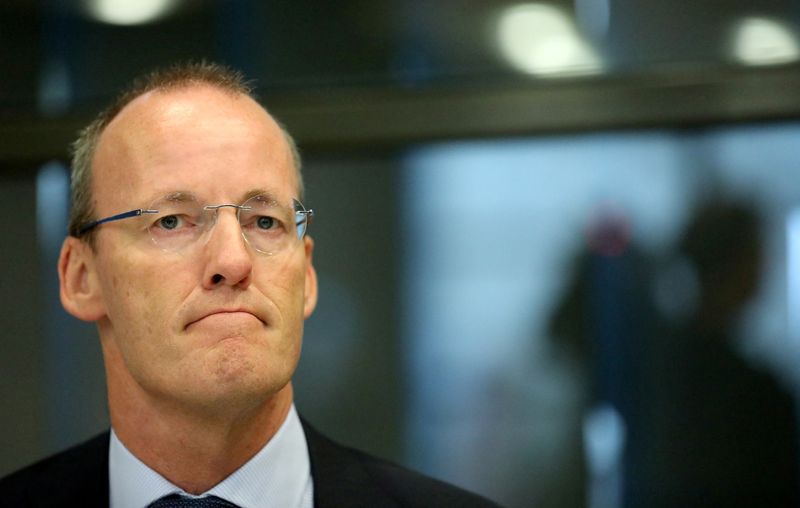ECB could hike rates again in May to tame stubborn inflation: Knot
2023.03.23 08:37

© Reuters. FILE PHOTO: ECB board member Klaas Knot appears at a Dutch parliamentary hearing in The Hague, Netherlands September 23, 2019 REUTERS/Eva Plevier/File Photo
By Balazs Koranyi and Toby Sterling
FRANKFURT/AMSTERDAM (Reuters) – The European Central Bank may need to raise rates again in May to fight inflation, Dutch central bank chief Klaas Knot said, adding a powerful voice to the growing chorus of policymakers calling for tighter policy even after recent market turmoil.
The ECB last week raised interest rates by 50 basis points to its highest level since late 2008 but made no commitment about future moves, worried that the recent global selloff in bank share could morph into a broader crisis. That would trip up what is already the fastest tightening cycle on record.
But the central bank chiefs of Germany, Austria, Slovakia and Lithuania, among others, have now all said the ECB is not finished because inflation is far too high and could be more persistent than the central bank’s own projections.
“I regard it unlikely that we would already be done by now,” Knot told Reuters in an interview. “It’s highly questionable whether maintaining rates only in mildly restrictive territory … would be enough to generate the immaculate disinflation that we probably all hope for.”
“I still think we need to make another step in May but I don’t know the size of that step,” Knot said separately in a news conference.
The caveat to any rate hike plan is that financial market turbulence needs to dissipate, but Knot said Europe was “very, very far” from a financial crisis and an escalation of the turbulence was not his base scenario.
The real problem is inflation, whose recent rapid falls may be masking that past energy prices have seeped into underlying price growth, making inflation more difficult to control.
Once driven by energy, inflation is now domestic, fuelled by wages and demand for services, with pipeline pressures not yet showing a turnaround.
“We should not let ourselves be lulled into comfort,” Knot said. “Our real inflation problem is core, which shows no sign of abating yet.”
The ECB omitted its usual inflation risk assessment last week but Knot said that, to him, risks were “clearly” tilted to the upside.
Wages are putting pressure on prices and the inflation projection assumed significant policy tightening, which has now largely been priced out by markets.
Markets now see another 50 basis point increase in the ECB’s 3% deposit rate – half what they assumed just two weeks ago but a big change from the height of the recent market turmoil when investors bet that the ECB’s next move would be a cut.
Knot said the turmoil that led to Credit Suisse’s takeover by UBS last weekend could still impact monetary policy if private sector funding costs stay elevated but this impact needs to have a “strong permanent character” to change the outlook.
The good news is that wage deals for 2024 show a slowdown, suggesting that the ECB’s inflation-fighting credibility is intact and that instead of a wage-price spiral, the moderating growth in wages will eventually extinguish price growth.
Rate hikes need to be complemented by a further reduction in ECB’s balance sheet, Knot said, because the 4 trillion euros’ worth of excess liquidity in the system is far too high, so the bank should step up the reduction of its bond portfolio.
“If there is no additional turmoil in the coming weeks, then I think that we can gradually move toward a full stop of Asset Purchase Programme reinvestments, under the condition that it can be accomplished without creating undue turbulence in the euro area bond markets,” Knot said.
For a Q&A with Knot, click here.
(This story has been refiled to correct spelling of Knot’s first name)








